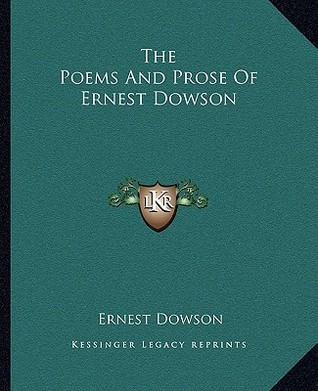What do you think?
Rate this book


164 pages, Paperback
First published January 1, 1905
Short summer-time and then, my heart’s desire,His play The Pierrot Of The Minute was a little more interesting, where Pierrot (a French clown character that has little meaning to me as English man, but apparently he's known for having his heart broken) seeks romance and so calls the Moon Maiden to soothe his cerulean testes, not caring for her warning of tragic consequences. It's a delightfully silly little play in rhyme, and I can easily imagine thespians performing it with exaggerated prancing as a relaxing break from more taxing dramas.
The winter and the darkness: one by one
The roses fall, the pale roses expire
Beneath the slow decadence of the sun.
